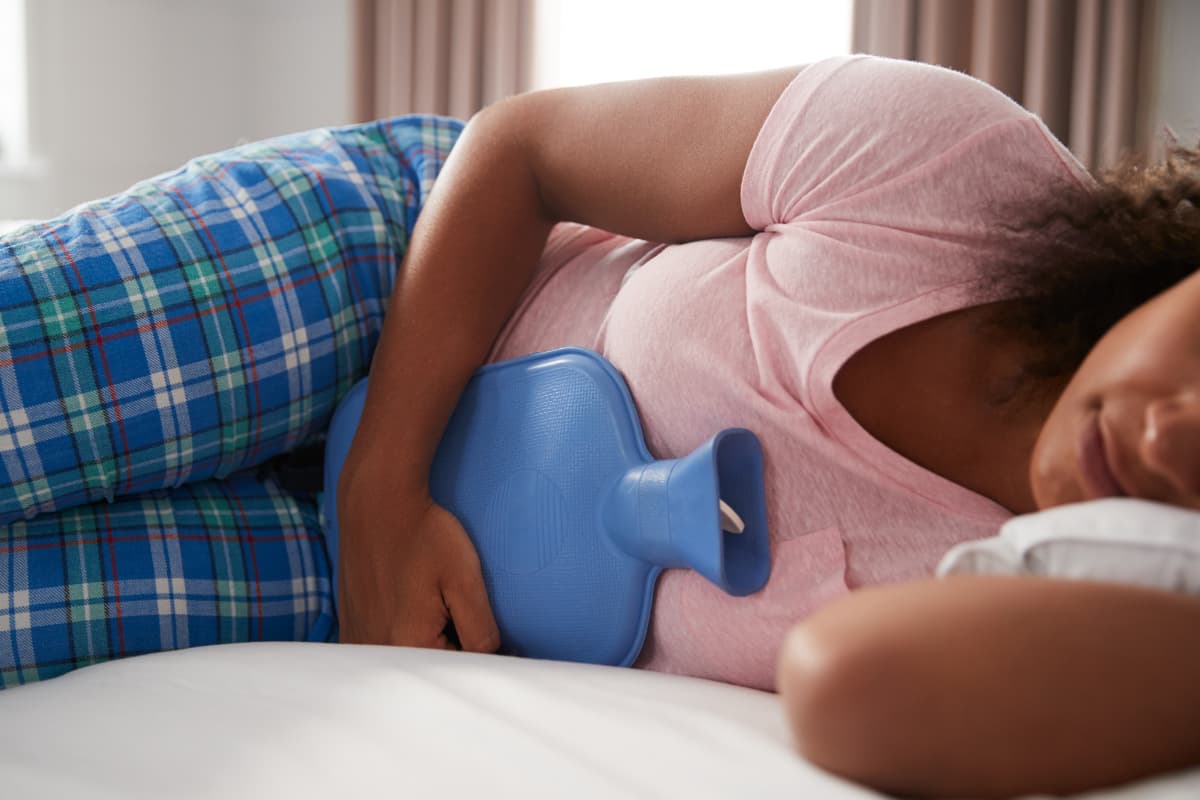At What Age Does Menopause Start?

Every woman who is assigned female at birth will go through perimenopause and menopause. You might wonder when this will happen to you and how you will even know when it does. Read on to learn more and be prepared, not blindsided, for this critical transition.
What Exactly Is Menopause?
Menopause is a natural biological event when a woman’s reproductive years come to an end. You will stop producing mature eggs (ovulating) and become non-fertile. Once you reach menopause, you will no longer have a menstrual period.
When Does Menopause Start?
Most women in the U.S. reach menopause naturally, typically between ages 45 and 55, and the average is 51 years of age, but there is a lot of variation from person to person.
The period when you are transitioning into menopause is called perimenopause. Most people start perimenopause in their 40s, although it can begin earlier or later for some.
During perimenopause, your ovaries undergo the process of shutting down. Your sex hormones, estrogen, and progesterone will decrease during this phase, and eventually, you will no longer produce fertile eggs. During the perimenopause stage, it’s important to continue to use birth control as you may still get pregnant.
Perimenopause lasts, on average, four years, although, again, there is a lot of variability from person to person. For some people, it can last less than a year, and for others, it can last up to a decade.
You will know that perimenopause has ended and menopause has been reached when you haven’t had a menstrual period for 12 consecutive months, that is not due to another cause.
Premature and Early Menopause
Research shows that about 1% of women will reach menopause prematurely before age 40. About 5% will reach menopause between the ages of 40-44, which is known as early natural menopause. Another 5% will reach menopause late after age 55.
- Before age 40 – premature menopause
- Ages 40-44 – early natural menopause
- Ages 45-55 – natural menopause
- Age 56+ – late menopause
Both premature and early natural menopause are associated with health risks. Low estrogen carries with it the potential of losing bone mass and developing osteoporosis, which has been linked to the development of heart disease in postmenopausal women. The longer your body lives with low estrogen, the more at risk you are of developing these negative physical effects.
There are many reasons someone might reach menopause early, but about 50 percent of women who do have no risk factors.
- Genetics
- Being underweight
- Surgery to remove ovaries and/or uterus
- Chemotherapy or radiation therapy
- Getting your first period before age 11
- Smoking
- Autoimmune diseases
- Chromosomal abnormalities
- Certain infections
Most risk factors for developing premature and early menopause cannot be changed. The exceptions are low body weight index and smoking.
Studies show that underweight people are twice as likely to experience premature or early menopause as someone with a higher body mass index (BMI). Smoking has also been shown to expedite the arrival of menopause. Research shows that the effect of smoking on menopause onset is dose-dependent, meaning the more you smoke, the earlier menopause might arrive. Fortunately, over time, your risk of early menopause decreases once you quit, making a compelling case for young women to stop smoking.
It’s important to establish that premature menopause isn’t the same as premature ovarian insufficiency (POI), although some people use the terms interchangeably. POI is a condition when your POI is a condition where your periods stop suddenly and spontaneously, either early or prematurely. When you have POI, there is still the possibility that your period will restart. You may still ovulate, menstruate or become pregnant. That is not the case with early or premature menopause. You don’t ovulate or menstruate, and you lose the ability to get pregnant.
Menopause Signs and Symptoms to Look Out For
The first clue that you might be entering perimenopause is a change in your menstrual cycle. In early perimenopause, your cycles can vary by up to seven days. You may also notice a change in menstrual flow and duration. One month your period might be heavy and long; the next, it will be short and light. Discussing menstrual cycle irregularity with your healthcare clinician is always a good idea.
Symptoms of low estrogen will begin in perimenopause, possibly before menstrual cycle irregularity, and are likely to increase in intensity and frequency the closer you get to menopause. You may notice some or all of the following symptoms.
- Hot flashes
- Night sweats
- Vaginal dryness
- Loss of libido
- Sleep problems
- Fatigue
- Headaches
- Changes in mood
- Dry skin and hair
As you move closer to menopause, you will enter late perimenopause. At this time, your cycle length will change dramatically. You may skip your period for up to 60 or more days and then have a period during late perimenopause.
When you haven’t menstruated for 12 consecutive months that is not due to another cause, such as birth control that suppresses your period, you can be confident you are in menopause and are no longer ovulating. If you want extra confirmation, you can ask your healthcare clinician for a test to check your hormone levels. Still, most find it unnecessary unless there is another reason to confirm that you’ve reached menopause.
Once you’ve entered postmenopause, your symptoms are likely to continue, but some will start to taper off over time (hot flashes and mood swings), and others may worsen (vaginal dryness and bone health). This is because your hormones have settled down into their new low levels and are no longer fluctuating as they were during perimenopause.
Get Prepared
There are many factors that determine when you will enter menopause, many of which are beyond your control. What you can control is modifying certain behaviors to lessen the risk of reaching menopause early. Maintain a healthy weight and don’t smoke. Also, ask your mom when she entered menopause. This might give you a general idea of when you can expect to start your transition. You can also prepare ahead of time for a smoother, potentially less symptomatic menopause transition by engaging in healthy lifestyle behaviors.
Talk to your healthcare clinician if you think you’re experiencing symptoms of perimenopause, and discuss supportive therapies or lifestyle changes that can keep you healthy and feeling good during this big change. You can also use the menopause app to learn what stage you are in and track your progression toward reaching menopause and get expert support on menopause and what to expect next. Download Midday from the App Store or visit us at Midday.Health.
Jennifer Turkyilmaz, RN, BSN, is a medical writer who worked for many years in women’s health as a high-risk pregnancy nurse. She is also a newly menopausal woman who wishes she had known more about what to expect before it happened to her.
Sign up for more unique women’s health content
By submitting this form, you agree to the Lisa Health Privacy Policy and Terms of Use


